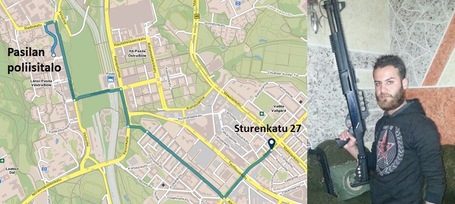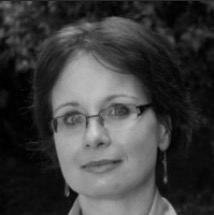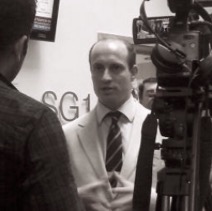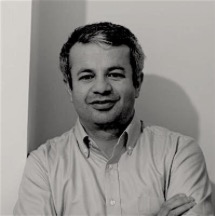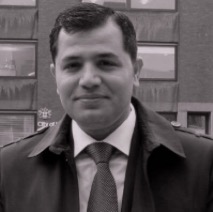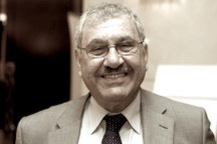Please Register Below
Middle East States and Non-State Actors
IRAN, IRAQ, AND SYRIA
Attendance is Free of Charge IN LONDON
DATE 15/06/2016 TIME 15:00 - 18:00
The terrorist attacks in Paris in November 2015, and Brussels in March 2016, prompted fears across Europe that a small number of the Islamic State (ISIS) terrorists may have slipped into Europe disguised as refugees. The aftermath of both attacks saw the European Union tightening its border regime, keeping a closer eye on Sunni radicals crossing into the continent, whose entry poses an imminent security threat for the EU member states.
Among the hundreds of thousands of refugees coming to the EU are members of Shia militias who opted out of combat in Iraq and Syria to “retire” in Europe. These are typically young men who served within the ranks of Hezbollah, Iranian Revolutionary Guards Corps (IRGC), and Assad’s regime militia so-called Shabiha. They are accused by locals and international organisations of committing war crimes.
At the symposium “Middle East Non-State Actors: Iran, Iraq, and Syria”, a distinguished panel of researchers will discuss the ascendancy of radical Shia militant groups and their relationships with state actors in the Middle East. Shia militias’ active engagement in wars across the region has contributed to the mushrooming security crisis, which has now arrived at Europe's Mediterranean shores.
The rise of non-state actors like ISIS and Shia militias exposed the plight of oppressed minorities in the Middle East. The Kurdish minorities in Iran and Syria are one example. Our research panel will discuss where the Kurdish question stands between state and non-state actors.
Our panel of experts will be presenting research papers on topics related to Shia militant groups, non-state actors, state actors, Kurds in Iran, Iraq, and Syria, and the implications of the security crisis in the Middle East.
Among the hundreds of thousands of refugees coming to the EU are members of Shia militias who opted out of combat in Iraq and Syria to “retire” in Europe. These are typically young men who served within the ranks of Hezbollah, Iranian Revolutionary Guards Corps (IRGC), and Assad’s regime militia so-called Shabiha. They are accused by locals and international organisations of committing war crimes.
At the symposium “Middle East Non-State Actors: Iran, Iraq, and Syria”, a distinguished panel of researchers will discuss the ascendancy of radical Shia militant groups and their relationships with state actors in the Middle East. Shia militias’ active engagement in wars across the region has contributed to the mushrooming security crisis, which has now arrived at Europe's Mediterranean shores.
The rise of non-state actors like ISIS and Shia militias exposed the plight of oppressed minorities in the Middle East. The Kurdish minorities in Iran and Syria are one example. Our research panel will discuss where the Kurdish question stands between state and non-state actors.
Our panel of experts will be presenting research papers on topics related to Shia militant groups, non-state actors, state actors, Kurds in Iran, Iraq, and Syria, and the implications of the security crisis in the Middle East.
SPEAKERS
|
Bianka Speidl, PhD
Senior Researcher The Migration Research Institute Bianka Speidl holds an MA in Arab and Islamic Studies and History at the Pazmany Peter Catholic University, Hungary. In 2015 she earned her PhD at the University of Exeter. Her dissertation examined the concept of power and force by the late Muhammad Husayn Fadlallah, who was considered as the spiritual founding father of the Lebanese Hezbollah. Currently she is a member of a Research Group on Religious Culture funded by the University of Szeged and the Hungarian Academy of Sciences and works at the Migration Research Institute in Budapest. |
|
Michael David Clark
(Department of Politics and International Studies, University of Cambridge) Michael is a Research Associate at the Department of Politics and International Studies at the University of Cambridge. As part of his doctoral research, he is undertaking a comparative analysis of the relationship between identity and foreign policy in the Lebanese Hezbollah and the Iraqi Sadrist Movement, in particular towards the 'Arab Spring' and the Syrian Civil War. This builds on his MRes research at the University of Exeter and his MSc research at the University of Bristol. More broadly, Michael's interests cover the politics of Iraq, Syria and Lebanon. He has travelled widely throughout the region and has lived and studied in Lebanon and Syria. His previous position was as a Research Associate at the American University of Beirut." |
|
Cengiz Gunes PhD
The Ideology and Discourse Analysis Research Programme, Department of Government, University of Essex Author of The Kurdish National Movement in Turkey: From Protest to Resistance co-editor of The Kurdish Question in Turkey: New Perspectives on Violence, Representation, and Reconciliation. Interest are in the areas of peace and conflict studies, Kurds in the Middle East, International relations of the Middle East and Turkish politics. Currently he works as an associate lecturer at the Open University, UK. |
|
Muhanad Seloom, PhD
Exeter Centre for Ethno-Political Studies University of Exeter Criminologist from University of Bangor Comparative Criminology and Criminal Justice. Main focus has been on terrorism, labelling, and mechanisms of securitisation. In his PhD thesis, his hypothesis examined relationships between listing and levels of violence in ethnic conflict contexts. Currently, a research fellow at University of London researching effects of the label terrorist on conflict resolution and conflict transformation |
Keynote & Chair
|
Mr. SABAH AL-MUKHTAR B.A., M.A.
President of the Arab Lawyers Association (UK) Qualified and admitted Arab Lawyer, studied Arab and Islamic law at Al-Mustansiryah University in Baghdad Iraq and awarded Bachelor degree in law in 1968. Awarded a degree of Master of Law from London in 1986. Iraqi Law Society in 1969. in-house Counsel in the legal department of the Iraq National Oil Company until 1974. Iraqi Bar in 1974. legal adviser to Abu Dhabi National Oil Company until 1980. Independent analyst on Arab affairs with special knowledge of Iraq. Specialist on UN-Iraq relationship, Oil affairs, Business, Economic policies and Risk analysis. |
You can choose to subscribe separately to our news on this page below
http://www.frbiu.com/join-our-mailing-list.html
If you have any further questions you can contact us on [email protected]
Looking forward to meeting you in Person ...


